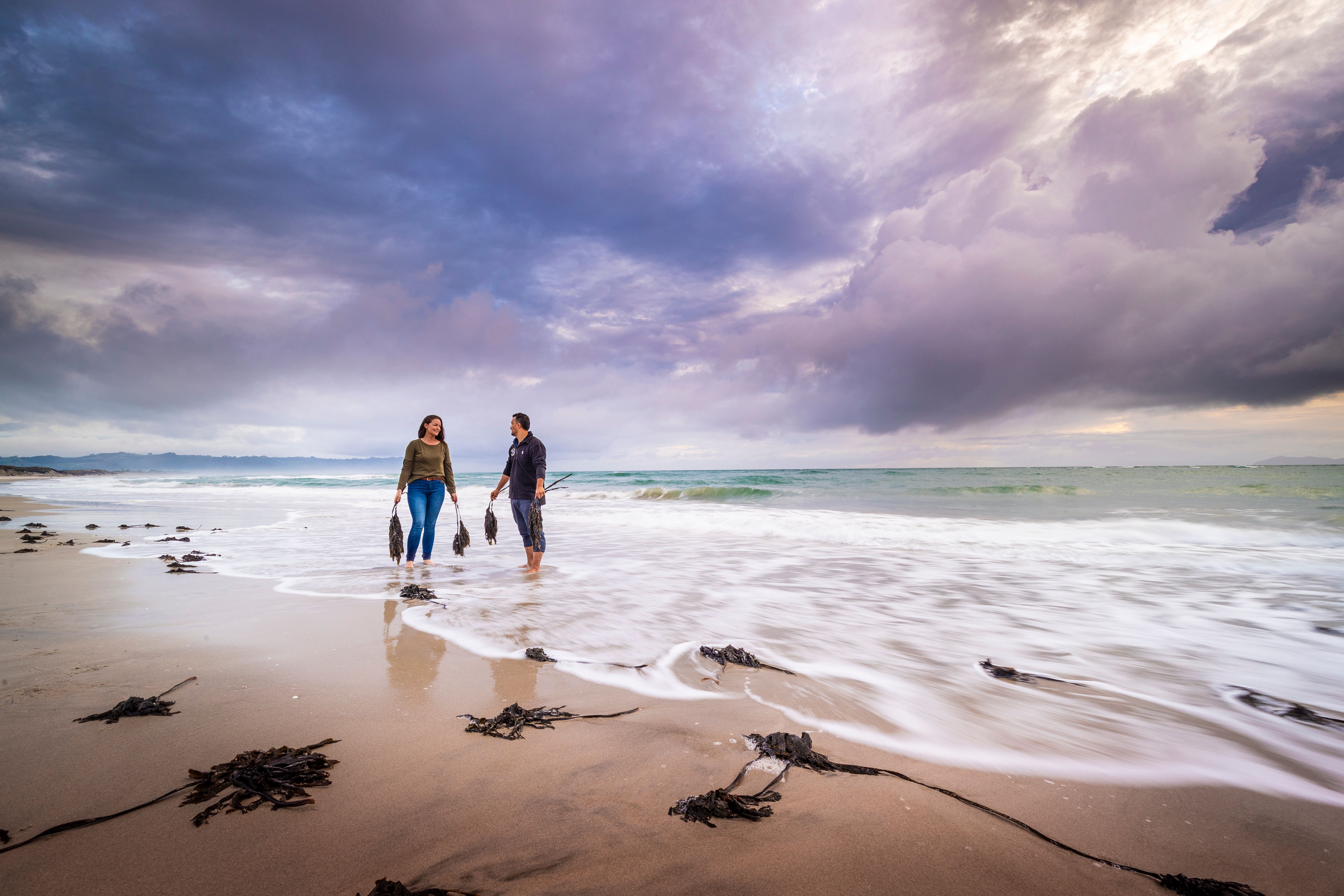
Dr Joe Hawke
Since 1881, Ngāti Whātua had been at the forefront of action over tribal land loss, hosting an assembly of Māori chiefs at Kohimarama. By 1900, their land holdings had diminished to Ōkahu Bay in Ōrākei, and the government and Auckland City Council were determined to remove them from there, building a sewerage pipe across the front of the village, and refusing to connect them to the city’s fresh water supply. But Ngāti Whātua would not leave. This was their whenua (land).

Te toto o te tangata, he kai; te oranga o te tangata, he whenua. While food provides the blood in our veins, our health is drawn from the land.
Just two years after the 1975 Land March, another influential Māori activist would arise – Joe Hawke (Ngāti Whātua Ōrākei), leader and spokesperson for the historic occupation of Takaparawhau Bastion Point. In fact, he, along with members of his family, had worked alongside the likes of Dame Whina Cooper, as a member of Te Rōpū o Matakite organization during the monumental Land March of 1975.
Sharon Hawke, Joe Hawke’s daughter, wrote in 2018:
“We’d been politicised by being on the Land March led by Whina Cooper – and walking through the country chanting, ‘Not one more acre of land’.”
Born in 1940 in Tāmaki Makaurau Auckland, Joe Hawke’s upbringing on Ōkahu Bay, where the village was, instilled in him a deep sense of empathy for those who were marginalised and oppressed, and a desire to fight for social justice and equality. In 1951, the Government used the Public Works Act to strip Ngāti Whātua Ōrākei of their land in Ōrākei, demolishing the housing of the papakāinga, and burning down their meeting house Te Puru o Tāmaki. They were left landless.
In the early 1970s, the National Government, led by Prime Minister Robert Muldoon, planned to sell the land at Bastion Point to a private developer. However, the land had historical significance for Māori, as it was the site of an ancient pā, or fortified village, and had been confiscated by the Government in the 19th century.
In 1977, Joe and his whānau established a protest camp on the land, beginning a 506-day occupation that became one of the longest and most significant acts of Māori resistance in New Zealand history. His five-year-old niece, Joanne Hawke, died in a fire during the occupation.
As Joe said at the time:
“We are landless in our land. Takaparawhau means a tremendous amount to our people. The struggle for the retention of this land is the most important struggle which our people have faced for many years. To lose this last bit of ground would be a death blow to the mana and the honour and to the dignity of Ngāti Whātua people. We are prepared to go all the way because legally we have the right to do it.”
Joe Hawke became a key figure in the Bastion Point occupation, serving as a leader and spokesperson for the Ōrakei Māori Action Committee. He was a powerful orator and advocate for Māori rights, and his charismatic leadership helped to mobilise support from across New Zealand and beyond. Despite being harrassed by the establishment, Joe remained committed to the cause, and the occupation ultimately ended in victory for the protesters, with the Government agreeing to return the land to the Ngāti Whātua Ōrākei ownership.
Following the Bastion Point occupation, Joe remained involved in campaigning for the rights of indigenous peoples both in Aotearoa New Zealand and internationally. He was elected a list MP for the Labour Party, serving two terms between 1996 and 2002, and was widely respected as a leader and mentor within te ao Māori.
Joe’s impact on New Zealand’s political and cultural landscape is significant. He is remembered as a visionary leader and a tireless fighter for justice and equality. He was awarded a Member of the New Zealand Order of Merit (MNZM) for services to Māori and the community in 2008.
“Be loving and kind to one another and by doing that you’ll love the land, the whenua tapu, as well. Forgive each other and spend each day with a purpose. Happiness is all that I wanted for my whānau. But one thing, without the whenua tapu, it’s very difficult and very hard to achieve,” he said.
Joe Hawke passed away on 22 May 2022, at the age of 82 and was buried on the whenua (land) at Takaparawhau Bastion Point, within Joanne’s memorial.
Explore the Legacy Project
.jpg)
Explore the Legacy Project
.jpg)
Explore the Legacy Project
.jpg)



.jpg)

